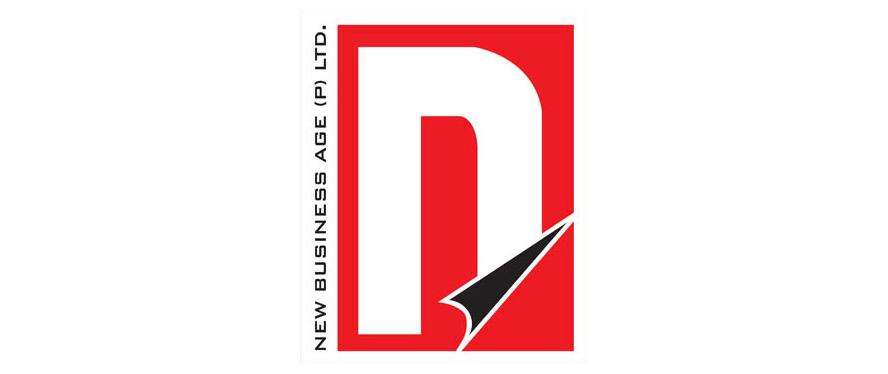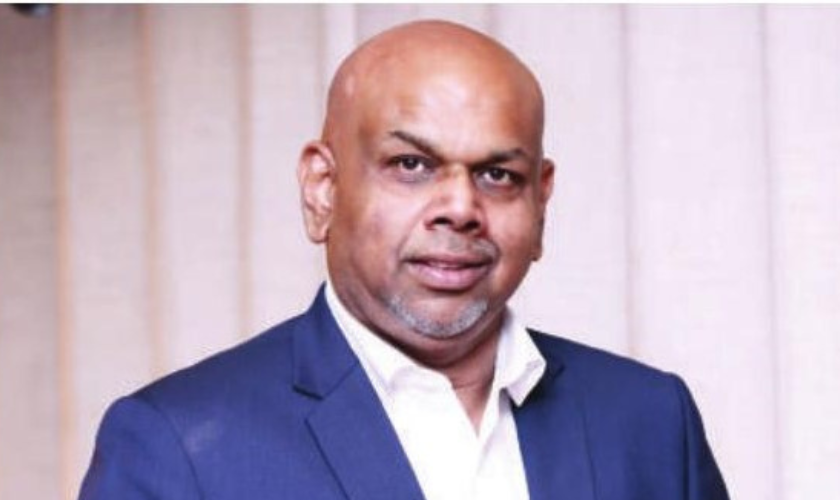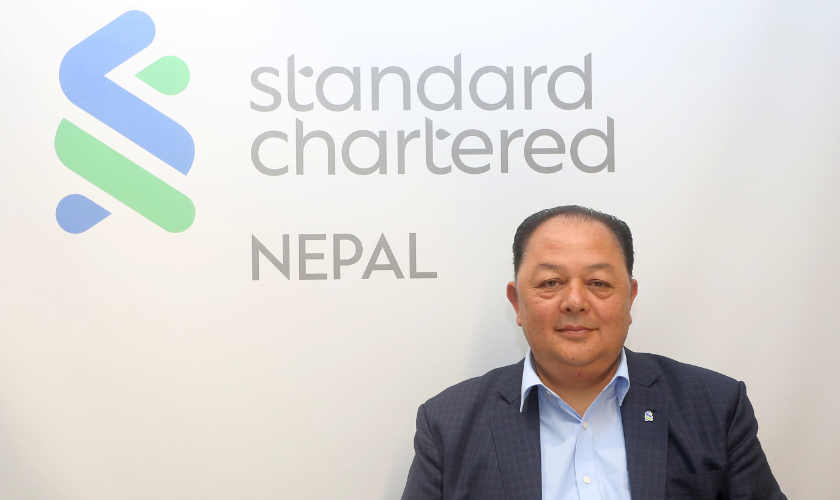Founded in 1994, Everest Bank is one of the leading banks of Nepal. With the business of above Rs 10,000 crores, this bank has been able to maintain 3rd position in terms of net profit. It was the highest tax payer among commercial banks for the fiscal year 2068/2069. The bank has also been awarded the Asian paints New Biz award for being the Best Managed Bank. In an interview with The Corporate, A.K Ahluwalia , the CEO of Everest Bank talked about his journey with the bank for the past six months and about the bank’s present and future status. Excerpts:
How do you evaluate your work so far in Everest Bank?
First of all, I would like to wish all the readers a very Happy New Year. I have been here for the last six months. When I joined, the bank was already a name to be reckoned with. It has built a good reputation and a niche for itself in the market. My first effort was to maintain that and the second, to take it forward. So, reflecting now, I think I have been successful in retaining & enhancing the reputation of the bank. By the time I complete my first year here, the bank will have added more value to its service and reputation.
Everest Bank had last year started an agro-specialised branch ‘Krishi Udhyam Bikash Sakha’ in Rajbiraj. How is this branch doing?
The branch is doing well. When other banks were not even thinking of agriculture, Everest Bank was the first one to act and went to the extent of opening a specialized branch for agriculture financing. The branch is operating well and has made lots of finances in the agricultural sector. However, we have not restricted ourselves to that branch only. We are doing agricultural financing in other branches through cooperatives and in some cases, directly to farmers also. We understand that agriculture’s role the Nepali economy is paramount and that is why we are focusing on it.
You talked about expanding agro-specialization to other branches as well. Which branches have this specialization?
We have already started it in Biratnagar, Narayanghat and Birtamod. We are financing it through cooperatives and they are doing very well.
Your Bank had also started a scheme to provide free debit card to school children through Freedom Account. How would you evaluate this scheme?
Our freedom account is doing very well. Besides that, we also have Nari Bachat Khata for women. So, these schemes are basically tailor-made for specific segments of the society taking care of their specific needs. All our branches are promoting these schemes. They are operating very successfully.
Freedom Account is an account that requires a minimum of only 100 rupees and it gives children the freedom to use debit card. There are more than 15 thousand accounts under the Freedom Account. Overall, Freedom Account is running very well and we are planning to come up with more of such products for other segments of the society.
Nepal Rastra Bank (NRB) is pursuing to implement its plan to introduce interest rate spread restriction on banks, despite opposition from the bankers. What is your stance on this?
As far as our bank is concerned, we are operating on the prescribed spread only. Thus, it is not such a big issue for us. There is no question of Bankers opposing any directive of the Central bank; it is just a feeling being conveyed that their profitability may be affected if they are restricted. If a bank wants to open a new branch, they have to go for additional staff for that branch. The branch will definitely take some time to come into profit. Banks open new branches to expand their reach and unless their branches are opened in all the corners of the country, financial inclusion will not take place.
Similarly, all the money that the bank raises from the public is not going to be put into advance. In fact, only 80 per cent of the amount that banks raise from the public can be given the shape for advances. But, what about the remaining 20 percent which hardly earns any return, So, that 20 percent needs also to be taken into account for calculating any spread.
Now, the banking sector is flooded with excess liquidity. How is the latest situation in Everest Bank?
Due to increase in the value of US$ and also elections extra liquidity is there with the Banks. When there is any kind of instability in the economy, people don’t want to invest or expand. They look for the opportune time. That is also the reason that the credit off-take gets affected. If there is no credit off-take, it is obvious that the banks will have more liquidity. I think it will take around 2 months for the system to absorb the liquidity because by then, entrepreneurs will be confident to invest in new ventures or expand the existing business and the economy will be stable.
What sets Everest Bank apart from all the existing banks in Nepal?
As of now, Everest Bank is looked upon as a very strong bank. The strength lies not only from the deposits we have and the advances we make, but also from our transparent decision making process. We also try to evaluate all the projects sincerely so that the incidence of default is reduced. Secondly, our staff is very friendly and courteous. They provide the best possible service to the customers and are always open for improvement. As a result of this, there is a constant relationship between the customers and the banks. Wherever I go, I find people who say that they started banking with Everest Bank since inception and that they find no reason to go elsewhere. So, that is the strength. Satisfied Customers and courteous staff are our biggest strength. It is the result of this that the bank did very well last year. We did a business of more than 10,000 crores with a profit of more than two hundred forty crores which is an achievement by itself.
Another thing is our involvement in CSR activities. We provided free drinking water facility at Geta Eye Hospital in Dhangadhi and also at Janaki Mandir, Janakpur and also provided digital display and monitor at Pashupatinath Temple. We supported the flood victims of Western region and have been organizing free health checkup camps every year. Besides we have sponsored number of awards to encourage schools, colleges, sportsmen, music, culture and health professionals in their pursuit for excellence. All in all, we are very sincere and alive about our CSR activities.













